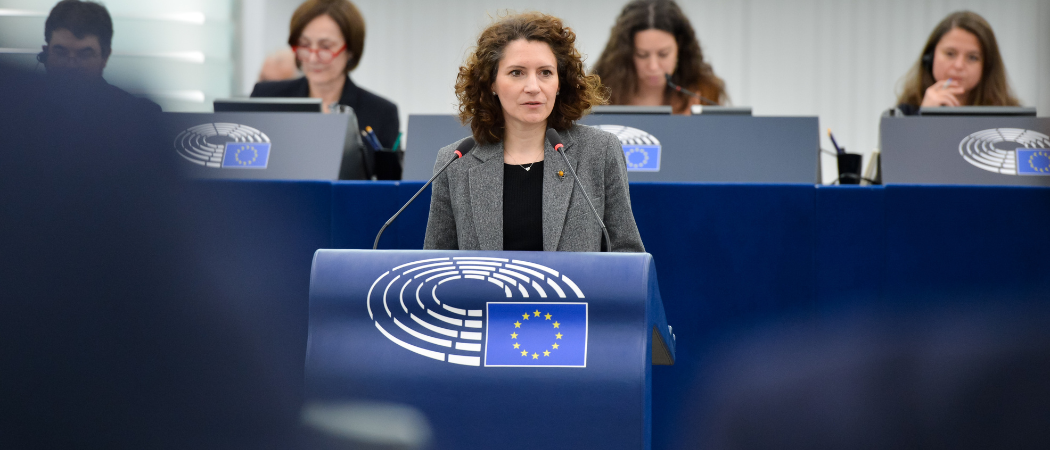A lack of detailed data means the recent midterm review has little new to say about the effectiveness of Widening policies

MEP Eszter Lakos. Photo credits: Brigitte Hase / European Union
The European Commission’s midterm review of Horizon Europe falls short in providing detailed data on Widening performance, according to an informal task force set up in the European Parliament. As such, the review offers few new insights into the Widening process and policies intended to close research and innovation gaps across the EU.
“[The midterm review] does not provide much added value because it’s too general,” said Eszter Lakos, an MEP from the European People’s Party and founder of the Widening group, in an interview with Science|Business.
According to Lakos, the review fails to offer a detailed analysis of specific Widening instruments and does not adequately examine the interconnections between them. In particular, she noted that a thorough examination of the relationship between the Widening instruments and participation in the Framework Programme was missing.
Ivana Didak, head of higher education policy at the Guild of European Research-Intensive Universities, echoed her concerns. “Although the evaluation mentions that the success rate of Widening countries has improved since Horizon 2020, it would be more useful to look into success per pillar, especially in the European Research Council and European Innovation Council,” she told Science|Business.
The analysis showed that the share of funding received by the 15 Widening countries increased from 9% to 14% in the first three years of Horizon Europe, and that they were involved in 58% of collaborative projects, up from 47% under Horizon 2020. These results have been welcomed by the Widening community, albeit with some reservations.
“While the review identifies several well-known weaknesses, what we found lacking was a deeper analysis of these findings, particularly in terms of their implications and the potential solutions,” added Orsolya Lugmayer, liaison officer at the Corvinus University of Budapest and another task force participant.
Monica Dietl, executive director of the Initiative for Science in Europe, also criticised the lack of new insights in the report, and called the data too general and of no practical use.
“[The numbers cited] were already known before this report,” she told Science|Business. “Member states have been receiving this data regularly, and many of the findings have been known for years.”
Related articles:
- Widening is working, but it is too soon to celebrate, say observers
- Widening programme should carry over into FP10, says MEP
She further pointed out that the report overlooks significant contextual factors, such as the size of the Widening countries and of their research communities, and working conditions such as salaries.
Another shortcoming, according to Lugmayer, is the review’s limited focus on research management and support services, areas where many institutions in Widening countries continue to face challenges.
“Several Widening calls under Horizon 2020 aimed specifically at building capacity in research management, proposal preparation and project administration,” she said. “It would have been highly valuable if the review had assessed whether those initiatives had a measurable impact on participation and success rates."
Feeding the top
While the review revealed an increase in funding allocated to the 15 Widening countries in the first half of Horizon Europe, Lakos expressed concern about the distribution of the remaining funds.
“What is really striking, considering the continued strength of core Europe and the location of the highest ranked research institutes, is that Germany, France, Spain and the Netherlands have basically almost 51% of the entire Horizon Europe funding,” she said. “It's very visible where the centre is.”
Without compromising excellence, more could be done to foster truly pan-European collaborations and innovation ecosystems, Lakos concluded.





 A unique international forum for public research organisations and companies to connect their external engagement with strategic interests around their R&D system.
A unique international forum for public research organisations and companies to connect their external engagement with strategic interests around their R&D system.